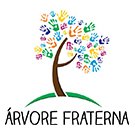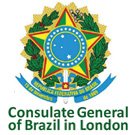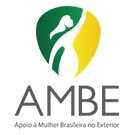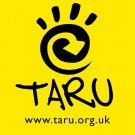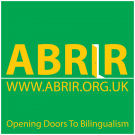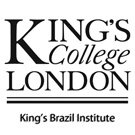
The Brazilian Citizenship Council in the UK and its Reformulation
27 Aug, 2014
English below | PortuguA?s aqui
By Shirley Nunes
Translation by Julio Davies
Photos by Jaqueline Haddad
Have you ever heard of the of Citizenship Council in the UK? In case not, you are welcome to take part and support improvements in the community, starting by attending the next meeting, 18 September. Since January 2013, Brazilians have gathered regularly to design the Council and find out the practices needed to support the community. Until now, the Council has worked with members and facilitators of several comissions aiming at a common goal. Created as a mean of dialogue, for the Consulate and CRBE, both in permanent contact with the Brazilian Government. In the last meeting, 07 August, the discussions involved voting for new facilitators and render of accounts by the commissions.Ai?? The ENCEJA (complimentary education for Brazilians); Paper regarding Gender in relation to the Brazilian immigration, and the visit of Marcus Vianna, coordinator of CRBE. Below, I refer present the two main topics discussed at the meeting, which give an outlook of the current situation of the Council.
Paper about Gender in the Brazilian Immigration
The Brazilian Consulate in London informed, according to point 30 of the Action Plan resulted from the IV Conference Brazilians in the World (Nov.2013), taking place from 4 to 6 November 2014 in Brasilia, the I Conference in Gender within Brazilian Immigrants. The goal of the Seminar is to deepen information regarding the Brazilian communities living abroad, such as domestic violence, parental guarding, stereotypes associated to Brazilian women, women`s health, empowerment of the lower sectors of the Brazilian diaspora, issues with the LGBT community, amongst others. In such context, the Consulate requested support from the members of the Council to forward a document with subsidies regarding the topic of the Conference, following the script below: Analyse if the Brazilian community in London and other parts of the UK face gender problems; evaluate in which way the Government and possible partners could act in each topic; how could the Citizenship Council support such actions; and additional issues that could be raised. The discussion amongst members took over an hours, as two contrasting positions appeared: the document should be produced by people and organizations knowledgeable of the subject and the other side claiming it could be decided by those present.
`The topic is very sensitive to be discussed with people who are not working directly with people affected by these problems`, claimed the representative from Lawrs and the other from AMBE ai??i?? organizations working with women victims of domestic violence in London. Ai?? Despite the longing discussion the result was simple: both the Council and the organizations and even individuals could send their analyis/document to the Consulate. Therefore, besides the document produced by the Council, there were also additional documents sent byAi??LAWRS,Ai??AMBE,Ai??Ai??Casa do BrasilAi??andAi??Naz.
Marcus Viana, coordinator of CRBE came to visit the UK Citizenship Council
In the learning process of the Council, working together was one of the main challenges. Many facilitators decided to leave even before completing one year. The reason? Artificially, one could argue the problem was not having a general coordinator to sign documents, take sides in deciding moments etc, as all members weighed the same in opinion and decision. On the other hand, more deeply, talking to previous facilitators, there are members with status ambitions, acting according their personal interests, instead of the community`s.
Marcus Viana coordinator of CRBE sent a document to the Council a month ago stating that `We have been receiving information about the challenges in the consolidation of this council and in the implementation of the commissions. (…) We were also informed that, considering the animosity environment observed in previous meetings, some decided to leave the commissions, which is unfortunate (…)`
Basically, until the end of the document, the representative requested that the Council organised better internally, naming its president/coordinator and creating or re-creating the commissions. In addition, he suggested the structure of the Council was shorter and similar to the existing ones in other countries, to be more productive and less subject to conflicts. The same came to London to personally meet members of the Council, and to enforce the need for change in the working way.
According to the representative from CRBE `There is nothing to add or remove from the Statute. I read time and again, and it is perfect. However, to achieve greater cooperation, and not to the Council, still in its early stages`.
He also told us that several councils have shorter statutes, with less clauses, and have been successful. Bear in mind, there are 49 citizenship councils spread all over the world. In the end of the meeting, members decided the Council need to meet in extraordinary plenary to rethink a new structure for itself ai??i?? and the topics to consider are: Rewrite the statute or should there be a new one? Could the statute be based in ones from other councils that have been successful? Regarding structure, besides facilitators and members, should there be a general coordinator? Should there be voting or indication to future facilitators? Or form groups, as suggested at the meeting? Whatever the topic, the next meeting aims to reformulate the Council, towards more effectiveness, as also the document logistics, decisions that need to be made, project approvals or not, the ethically functioning of the statute.
The Reformulation of the Citizenship Council Who will decide upon the new Statute and structure? Nobody but you. Ai??
Do you remember last year`s demonstrations in June in Brazil? Those refleted here and over a thousand Brazilians in London, in front of the Westminster Abbey, supported the protests in Brazil, towards guaranteeing their rights and positive changes. Now you, dear reader, can also have a voice in the Participative Council in London. Come to think together with other members to create a healthy council, with new practices toward the improvement of life of those Brazilians living here. Whoever wants to can take part in the reformulation, happening from 7pm at the Brazilian Consulate (3, Vere Street, London, W1 0DH). Worth noting the consolidated minute from the previous meeting was not released yet. It should be found at the Council`s webpage.
You can check previous minutes and the current Statute at the facebook page: https://www.facebook.com/Conselhodecidadania so you can take part on the topics discussed.
Here the Rules of Creation and Functioning of the Councils
There is a section in the webpage Brazilians in the WorldAi?? named Space of the Council. This was created to display what is done in the Council, ranging from its main projectsAi?? to its general updates. When visiting the link you will find further information regarding the councils. Ai??http://www.brasileirosnomundo.itamaraty.gov.br/espaco-dos-Conselhos
Extra informationAi??
We also reccomend the weblink for the Book of Legal Orientation for Brazilians abroad: http://sistemas.mre.gov.br/kitweb/datafiles/CgLondres/pt-br/file/Cartilha-de-orientacao-juridica-aos-brasileiros-no.pdf
For those who do not know yet, here is the Facebook page of the Brazilian General Consulate in London, where you can find useful information.Ai??https://www.facebook.com/cglondres?fref=photo




























